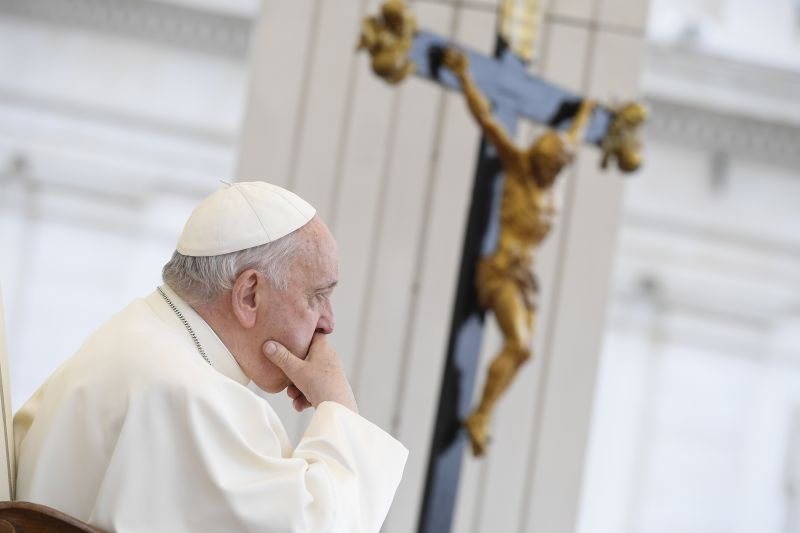
Caracas, Venezuela, Feb 23, 2019 / 04:50 pm (CNA).- The Venezuelan Bishops’ Conference is calling on Nicolas Maduro’s government to allow humanitarian aid to enter the country and be peacefully distributed to people who are desperately in need of it.
The bishops of the country urged Nicolas Maduro to listen to the “cry of the people,” stressing that the humanitarian aid is responding to a “grave crisis,” and not politically motivated.
Maduro was sworn in for a second term Jan. 10, after winning a contested election in which opposition candidates were barred from running or imprisoned. Amidst the protests that followed, the head of the nation’s parliament, Juan Guaidò, declared himself interim president on Jan. 23, pledging a transitional government and free elections. The United States and more than a dozen other European and South American nations no longer recognize Maduro as Venezuela’s president.
Food and medical aid are currently being warehoused in Cúcuta, Colombia and Roraima, Brazil. While the supplies have been offered to Venezuela, Maduro has not allowed it to enter the country, claiming that there is no humanitarian crisis.
The Venezuelan National Assembly has helped organize the aid, which Guaidó says will start entering the country over the weekend, despite Maduro’s opposition.
In a Feb. 17 statement, Bishop Mario Moronta of San Cristóbal, Venezuela, urged Maduro not to continue saying “the aid is unnecessary.” The bishop said that “countless officers from the Armed Forces, and high-ranking government officials are quietly coming to many priests and laypeople, institutions in this region, so we can obtain in Cúcuta medicine for them, or their relatives, food, etc. Out of fear they're certainly not telling you. But it's true.”
In their statement, the Venezuelan bishops said that “the regime has the obligation to attend to the needs of the population, and therefore to facilitate the entrance and distribution of humanitarian aid, avoiding any type of repressive violence.”
They argued that requesting and receiving aid is not “any kind of treason to the homeland,” as Maduro has said, but “a moral duty that is incumbent on us all.”
They also mentioned the pastoral and social work the Church is carrying out through Caritas.
“The aid basically consists of emergency food supplies, supplements for malnourished children and the elderly, and medical supplies, mainly therapeutic,” the bishops' conference said in its statement.
The bishops called on the National Armed Forces “to stand on the side of the people to which they belong,” noting that their members swore to uphold the Constitution and that “they serve the Venezuelan people first.”
“It is their commitment to defend them, to protect their inalienable rights and to make their human dignity shine forth. In conscience, you must not to follow orders that attack the life and safety of the population,” the bishops said.
The bishops asked the intercession of the Virgin of Coromoto, patroness of Venezuela, to accompany the people “in these times of so much hope for the country,” so that what Christ taught might become a reality: “I have come that they may have life and have it in abundance.”
Maduro’s leadership in Venezuela has been marred by violence and social upheaval with severe shortages and hyperinflation leading millions of Venezuelans to emigrate. Those who have stayed have faced a serious lack of food, medicine and other necessities.
According to research by the NGO Médicos para la Salud, public hospitals in the country have lacked 90 percent of the necessary medical supplies over the last three years.
Almost 18,000 Parkinson patients are unable to access medication, which costs between $400 and $600 a month, as the minimum wage salary is about $6 a month.
If you value the news and views Catholic World Report provides, please consider donating to support our efforts. Your contribution will help us continue to make CWR available to all readers worldwide for free, without a subscription. Thank you for your generosity!
Click here for more information on donating to CWR. Click here to sign up for our newsletter.





Leave a Reply